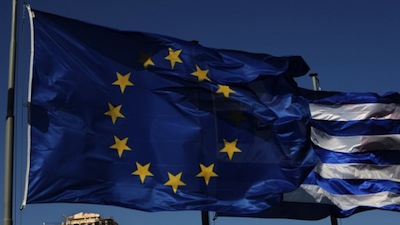
Lack of competitiveness is often cited as one of the reasons why Europe, particularly the Eurozone, is in such trouble. But what exactly does that mean? How does a lack of competitiveness manifest itself? An article in The Economist sheds light on this:
Europe gave birth to just 12 new big companies between 1950 and 2007. America produced 52 in the same period... Europe has only three big new listed firms founded between 1975 and 2007. Of those, two were started in Britain or Ireland, which are closer to America in their attitude to enterprise than continental Europe.
What is the result of this attitude?
Many aspiring entrepreneurs simply leave. There are about 50,000 Germans in Silicon Valley, and an estimated 500 start-ups in the San Francisco Bay area with French founders. One of the things they find there is a freedom to fail.
Failure is a tragic, yet necessary, component of capitalism. Entrepreneurs need the freedom to both succeed and fail. And when they do fail, they need the ability to declare bankruptcy, pick up the financial pieces and, if they are so inclined, start all over again.
But that's not what happens in much of Europe.
Some countries keep failed entrepreneurs in limbo for years. Britain will discharge a bankrupt from his debts after 12 months; in America it is usually quicker. In Germany people expect it to take six years to get a fresh start, according to the commission; in France they expect it to take nine... In Germany bankrupts can face a lifetime ban on senior executive positions at big companies.
Failure is a basic lesson not only about capitalism, but indeed about life itself. Yet, this lesson appears to have evaded many people - one of them the current President of France. Perhaps a change of attitude must occur before the members of the Eurozone can expect to see economic progress.
(AP Photo: Petros Giannakouris)



